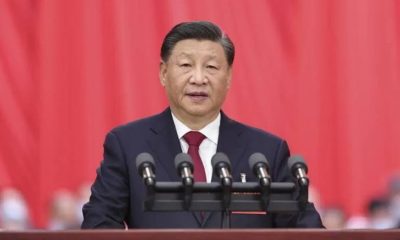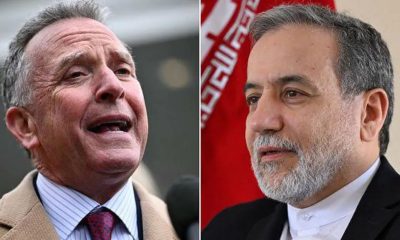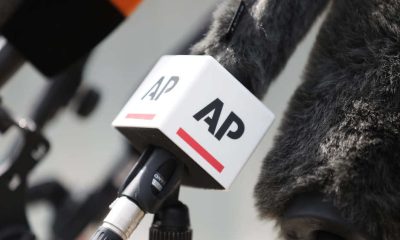International
Netanyahu faces delicate balancing act in US after Biden exits race
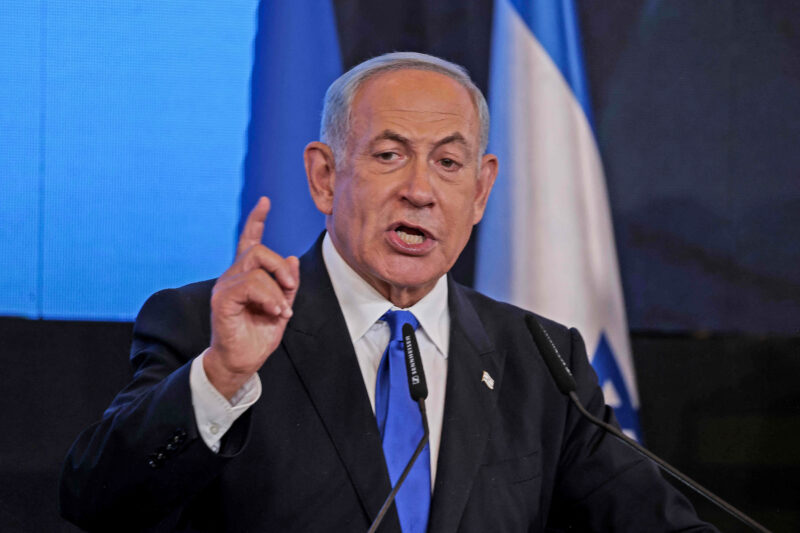
Netanyahu faces delicate balancing act in US after Biden exits race
Israeli Prime Minister Benjamin Netanyahu visits the US this week under pressure to end the Gaza war, from both Israelis and the US administration. How might the political turbulence in Washington shape the trip and future relations?
Mr Netanyahu is set to meet Joe Biden – if the president has recovered from Covid-19 – and address a joint session of Congress, the only foreign leader to do so for a fourth time.
The trip offers him a platform for a reset with Washington after months of tensions over his hardline approach to the war, and an opportunity to try and convince Israelis that he hasn’t undermined relations with their most important ally.
But it is overshadowed by President Biden’s decision not to seek re-election, highlighting political uncertainties about Israel’s next partner in the White House and possibly eclipsing some of the attention on Mr Netanyahu’s visit.
The prime minister got a lot of unwelcome attention in Israel until the moment he boarded the plane.
A drumbeat of protests demanded that he stay home and focus on a ceasefire deal with Hamas to free Israeli hostages.
“Until he has signed the deal that’s on the table, I do not see how he picks up and flies across the Atlantic to address the American political chaos,” said Lee Siegel, one of the family members who has come out to demonstrate. His 65-year-old brother Keith is a captive in Gaza.
The trip is a political move, he added, unless Mr Netanyahu stops being a “hurdle” and signs the ceasefire agreement.
Mr Siegel reflected a widespread view that Mr Netanyahu is slow-rolling the process for his own political reasons, roiling his negotiators when he recently threw new conditions into talks that seemed to be making progress.
The prime minister has been accused of bowing to pressure from two far-right cabinet ministers who’ve threatened to bring down his government if he makes concessions to Hamas.
These perceptions have added to frustrations in the White House, which announced the latest formula for talks and had been expressing optimism an agreement could be achieved.
READ ALSO:
- Biden’s legacy is Gaza genocide, Palestinian rights advocates say
- Why some people in NNPC are sabotaging Dangote refinery – Emir Sanusi
- Dozens killed as Palestinians flee Israel’s new offensive on Khan Younis
Mr Biden remains one of the most pro-Israel presidents to sit in the Oval Office, a self-declared Zionist who’s been lauded by Israelis for his support and empathy, cemented by his flight to Israel just days after the Hamas attacks on 7 October.
But since then, he’s grown alarmed at the cost of Mr Netanyahu’s demand for a “total victory” against Hamas in Gaza.
The administration is frustrated with the Israeli prime minister for rejecting a post war solution that involves pursuing a Palestinian state.
It’s angry with him for resisting appeals to do more to protect Palestinian civilians and increase the flow of aid to them. It’s facing a domestic backlash over the mounting death toll in Gaza. And it’s worried that the conflict is spreading to the region.
As Joe Biden’s presidency weakened in the swirl of controversy over his abilities, analysts said there might be less room for him to keep up the pressure on the Israeli prime minister.
But Mr Biden’s decision to drop out of the race could actually have strengthened his hand, says Ehud Barak, a former Israeli prime minister and a critic of Mr Netanyahu.
“He is not a lame duck in regard to foreign policy, in a way he’s more independent (because) he doesn’t have to take into account any impact on the voters,” Mr Barak told the BBC.
“With regard to Israel probably he feels more of a free hand to do what really needs to be done.”
Mr Barak believes it was a mistake for Congress to invite Mr Netanyahu to speak, saying that many Israelis blame him for policy failures that allowed the Hamas attack to happen, and three out of four want him to resign.
“The man does not represent Israel,” he said. “He lost the trust of Israelis…And it kind of sends a wrong signal to Israelis, probably a wrong signal to Netanyahu himself, when the American Congress invites him to appear as if he is saving us.”
Whatever politics he may be playing, Mr Netanyahu insists military pressure must continue because it has significantly weakened Hamas after a series of strikes against the military leadership.
READ ALSO:
- Ekiti council worker arrested, accused of sleeping with teenage daughter
- I’ll divorce my wife if Kamala doesn’t win US presidential election – Charly Boy
- Lagos traditional ruler who faked his abduction gets jail term reduction
In comments before departing Israel, he suggested that would be the tone of his meeting with President Biden.
“It will also be an opportunity to discuss with him how to advance in the months ahead the goals that are important for both our countries,” he said, “achieving the release of all our hostages, defeating Hamas, confronting the terror axis of Iran and its proxies and ensuring that all Israel’s citizens return safely to their homes in the north and in the south.”
He’s expected to bring the same message to congress, “seeking to anchor the bipartisan support that is so important to Israel”.
The reality is that Mr Netanyahu’s polices have fractured that bipartisan support. The Republicans are rallying around him, but criticism from Democrats has grown.
The Democratic Senate Majority leader Chuck Schumer caused a small earthquake in Washington recently when he stood up in the chambers and said Mr Netanyahu was one of the obstacles standing in the way of a lasting peace with Palestinians.
“I hope the prime minister understands the anxiety of many members in congress and addresses them,” the former US ambassador to Israel, Thomas Nides, told the BBC at the weekend. He’d been addressing one of the many rallies demanding a hostage release.
That includes “on humanitarian issues and to articulate that this fight isn’t with the Palestinian people, it’s with Hamas.”
It’s a message that Kamala Harris would repeat if she were to become the Democratic nominee. There’d be no change in US policy: a commitment to Israel’s security while pushing for an end to the Gaza conflict and a plan for the Day After embedded in a regional peace with Arab states.
READ ALSO:
- Ondo state police rescue kidnapped corps members
- Another Chibok girl rescued with two children
- Reps probe missing crude, contaminated fuel
But there might be a difference in tone.
Ms Harris does not share Mr Biden’s long history with and emotional ties to Israel. She’s from a different generation and “could more closely align with the sentiments of younger elements of the Democratic party,” says Mick Mulroy, a former deputy assistant secretary of defence for the Middle East.
“That’s a stance more likely to include restrictions on weapons, on munitions from the United States for use in Gaza,” he said.
Mr Netanyahu could very well use the visit to steer the conversation from the controversy over Gaza to the threat from Iran, a topic with which he’s far more comfortable, especially after the recent escalation with Iran-backed Houthi rebels in Yemen.
But his main audience will be domestic, says Tal Shalev, the diplomatic correspondent at Israel’s Walla News.
He wants to revive his image as “Mr America,” she says, the man who can best present Israel to the US, and to restore his image which was shattered by the October 7 attacks.
“When he goes to the US and speaks in front of Congress and [has] a meeting in the White House, for his electoral base, it’s the old Bibi is back again,” she says, referring to the prime minister by his nickname. “This is not the failed Bibi who was responsible for the seventh of October. This is the old Bibi who goes to the Congress and gets the standing ovations.”
It also gives him an opportunity to pursue connections with the former President Donald Trump at a time of great political flux in Washington.
“Netanyahu wants President Trump to win,” she says, “And he wants to make sure that he and President Trump are on good terms before the election.”
There is a widespread view that Mr. Netanyahu is playing for time, hoping for a Trump win that might ease some of the pressure he’s been facing from the Biden administration.
“There is a near-universal perception that Netanyahu is eager for a Trump victory, under the assumption that he will then be able to do whatever he wants,” writes Michael Koplow of Israel’s Policy Forum.
“No Biden pressuring him on a ceasefire or on West Bank settlements and settler violence… There are many reasons to doubt this reading of the landscape under a Trump restoration, but Netanyahu likely subscribes to it.”
The question is whether that pressure from Biden will ease as he steps away from the presidential race, or whether he will in fact use his remaining months in office to focus on achieving an end to the Gaza war.
Netanyahu faces delicate balancing act in US after Biden exits race
BBC
International
Despite trade spat with US, China exports rises 12.4%
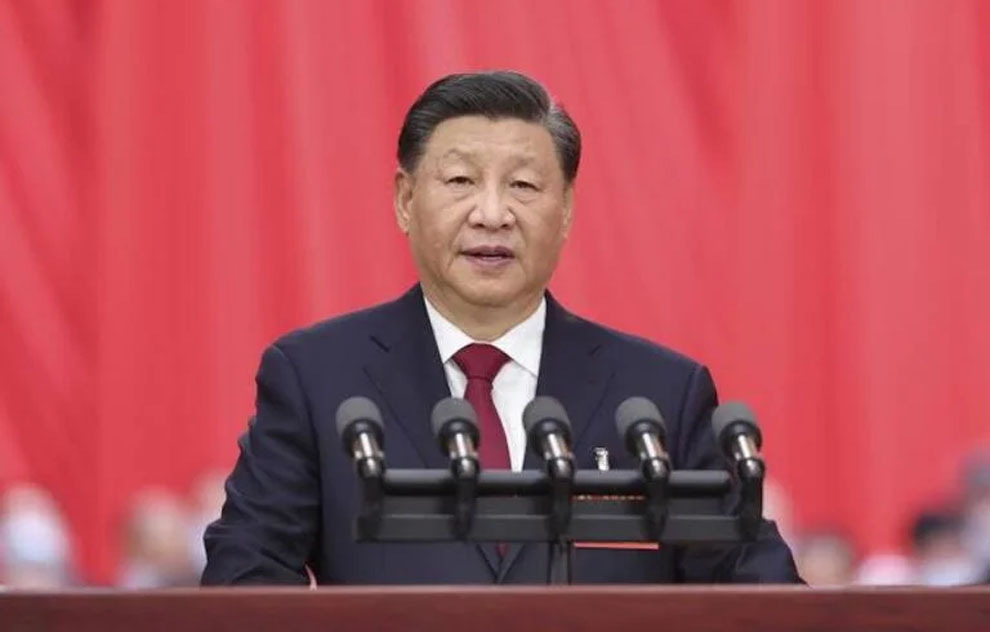
Despite trade spat with US, China exports rises 12.4%
China announced on Monday that its exports surged by 12.4% in March compared to the same period last year, defying forecasts and demonstrating resilience amid growing trade tensions with the United States.
According to figures released by the General Administration of Customs, the increase in outbound shipments more than doubled Bloomberg’s earlier prediction of 4.6%.
This performance comes as businesses rushed to beat a new wave of US tariffs introduced by President Donald Trump on his so-called “Liberation Day.”
Beijing and Washington remain entangled in a high-stakes trade standoff that has seen tit-for-tat tariff hikes. US tariffs on Chinese imports have risen to 145 percent, with Beijing retaliating by imposing a 125 percent levy on American goods.
Imports into China during the same period dropped by 4.3 percent. While still negative, this was a slight improvement from earlier months and suggested an uptick in domestic consumption.
Beijing reported that the United States was still China’s largest single export destination from January to March, accounting for $115.6 billion in trade. Remarkably, even as tensions escalated and new tariffs were introduced in March, exports to the US climbed roughly nine percent year-on-year.
China has set an annual growth target of around five percent, aiming to shift its focus towards domestic demand as the main engine of economic expansion. However, Trump’s trade war is emerging as a fresh challenge to this recovery strategy.
READ ALSO:
- Tinubu not in France for medical attention – Presidency
- Eedris Abdulkareem: I didn’t attack Seyi Tinubu with my new song
- Our position on Tinubu/Shettima 2027 campaign billboards – Presidency
The US government appeared to ease pressure slightly on Friday by announcing exemptions for several tech products, including smartphones, laptops, and semiconductors—key categories in which China plays a dominant role.
Analysts said the March export surge was likely driven by a wave of frontloading by companies aiming to ship goods before the April 2 tariffs kicked in.
“The strong export data reflect frontloading of trade before the US tariffs were announced,” said Zhiwei Zhang, President and Chief Economist at Pinpoint Asset Management. “China’s exports will likely weaken in the coming months as the US tariffs skyrocket,” he added.
Zhang also noted that “The uncertainty of trade policies is extremely high.”
Julian Evans-Pritchard, head of China economics at Capital Economics, added, “In anticipation of even higher duties, demand from US importers continued to hold up fairly well” in March. “But shipments are set to drop back over the coming months and quarters,” he warned. “It could be years before Chinese exports regain current levels.”
Despite efforts to boost the economy, China is still battling weak consumption and an ongoing debt crisis in the property sector. Last year, authorities introduced aggressive policies—including interest rate cuts, relaxed home-buying rules, higher debt ceilings for local governments, and market support measures.
However, enthusiasm faded when no concrete figures or timelines were released for a much-anticipated economic stimulus.
As the trade war intensifies, China’s ability to maintain export growth and achieve its economic goals will remain under close international scrutiny.
Despite trade spat with US, China exports rises 12.4%
International
US, Iran hold ‘constructive’ first round of nuclear talks
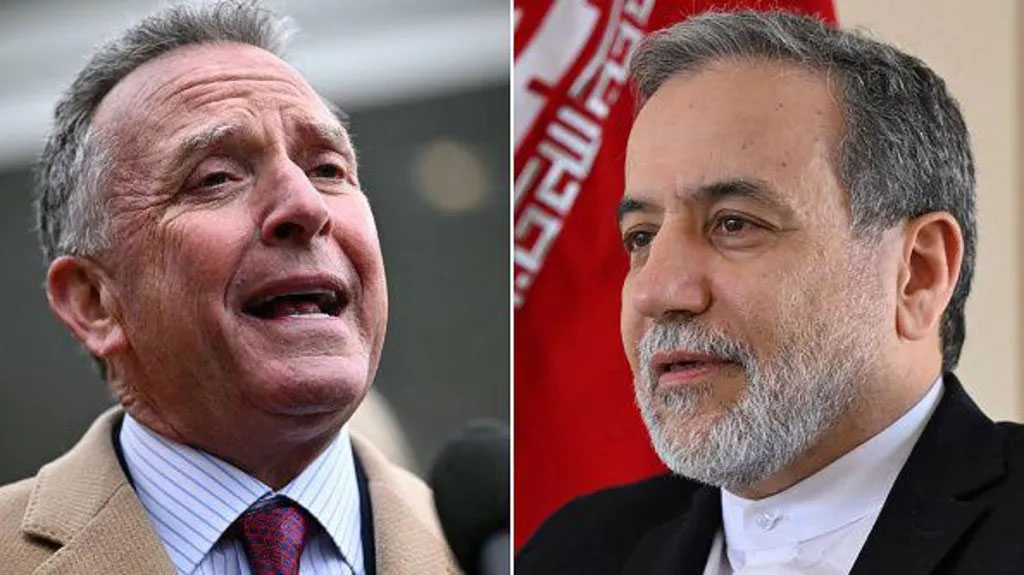
US, Iran hold ‘constructive’ first round of nuclear talks
Iran and the US have concluded a first round of talks in Oman over Tehran’s nuclear programme – the highest-level meeting between the two nations since 2018.
Both countries described the meeting as “constructive” and confirmed a second round of discussions will take place next week – with the US hailing the “direct communication” as being key to striking a possible deal.
President Donald Trump pulled the US out of a previous nuclear agreement between Iran and world powers in 2018, and has long said he would make a “better” deal.
The talks are seen as an important first step in establishing whether a deal can be done.
At two-and-a-half hours, the first meeting was brief, reportedly respectful – and set the stage for a second round.
That was probably as good as it could get when Iranian and US officials sat down in Muscat, the capital of Oman – whose top diplomat mediated the primarily indirect negotiations.
They were the most significant talks since Trump pulled the US out of the Iran nuclear deal of 2015 during his first term in office.
The verdict of Iran’s lead negotiator, Foreign Minister Abbas Araghchi, was positive.
“In my opinion, as the first meeting, it was a constructive meeting held in a very peaceful and respectful environment, because no inappropriate language was used,” he told Iranian state TV.
His diplomatic tone suggests the US team led by Trump’s envoy Steve Witkoff did not reiterate some of the president’s threats that Iran would face “great danger” if this dialogue did not succeed. He has repeatedly warned of possible military strikes.
READ ALSO:
- 2025 UTME: JAMB releases mock results
- Trump exempts smartphones, computers from new tariffs
- Gaza hospital hit by Israeli strike, Hamas-run health ministry says
This meeting ran with the delegations in separate rooms, relaying messages through Oman’s foreign minister, Badr bin Hamad al-Busaidi.
Witkoff, who is leading the US delegation, had previously only spoken of meeting face-to-face.
But Araghchi and Witkoff did speak for a few minutes in the presence of Busaidi – not the direct talks US officials said would happen but what could be a small but significant opening.
Iran, mindful of pressure from hardliners at home, underlined how limited their face-to-face exchange was, with no photographs taken.
In a statement following the talks, the White House said the discussions “were very positive and constructive”, noting that Witkoff had emphasised to Iran that he had instructions to resolve the adversaries’ “differences through dialogue and diplomacy, if that is possible”.
“These issues are very complicated, and special envoy Witkoff’s direct communication today was a step forward in achieving a mutually beneficial outcome,” the statement added.
Araghchi had said ahead of the discussions that his country wanted a “fair agreement”.
After the talks concluded, he said discussions next week may not happen in Oman, but would still be mediated by the Middle Eastern nation. The White House said they would take place next Saturday.
“Neither we, nor the other party, want fruitless negotiations, discussions for discussions’ sake, time wasting or talks that drag on forever,” Araghchi told Iranian state television.
The most important issue at stake is what kind of deal each side would be willing to accept.
Trump sent a letter to Iran’s supreme leader via the United Arab Emirates last month, saying he wanted a deal to prevent Iran from acquiring nuclear weapons and to avert possible military strikes by the US and Israel.
Iran hopes for a deal to limit, but not dismantle, its nuclear programme in exchange for sanctions relief.
An unnamed source in Oman told news agency Reuters that the talks would seek to de-escalate regional tensions and secure prisoner exchanges.
READ ALSO:
- Massilia Motors launches new Mitsubishi L200 with low fuel consumption, advanced engineering
- London mother sentenced to life in prison for drowning two sons
- LASRRA, LASDA to launch strategic documentation drive for Lagos diaspora database
Trump revealed the talks would take place during a visit by Benjamin Netanyahu to the White House on Monday. The Israeli prime minister said on Tuesday that both leaders had agreed that Iran “will not have nuclear weapons”.
Netanyahu has called for a “Libya-style deal”, referring to the north African nation completely dismantling its weapons programme in an agreement reached with Western powers in 2003. That would be completely unacceptable to Iran.
Iran insists its nuclear activities are entirely peaceful and that it will never seek to develop or acquire nuclear weapons.
Iranian officials have made it clear the negotiations will focus only on its nuclear programme, not its broader defence capability, such as its ballistic missile programme.
Ahead of the talks, Trump said on Friday that he wanted Iran “to be a wonderful, great, happy country – but they can’t have nuclear weapons”.
Trump has warned that the US would use military force if a deal was not reached, and Iran has repeatedly said it will not negotiate under pressure.
But this process is taking place under immense pressure.
Even as preparations were under way to arrange this first meeting, the US moved more warships and stealth bombers to the region and imposed more sanctions.
The US president told reporters in the Oval Office on Monday it would “be a very bad day for Iran” if the talks were unsuccessful.
Iran insists its nuclear activities are entirely peaceful and that it will never seek to develop or acquire nuclear weapons.
However, since Trump pulled out of the 2015 agreement – which expires later this year – Iran has increasingly breached restrictions imposed by the existing nuclear deal in retaliation for crippling US sanctions reinstated seven years ago, and has stockpiled enough highly-enriched uranium to make several bombs.
Under the terms of the 2015 deal, Iran agreed to only enrich uranium up to 3.67% purity for the next 15 years.
In February, the International Atomic Energy Agency (IAEA) nuclear watchdog reported that Tehran had stockpiled uranium enriched to 60% purity and could swiftly move to 90%, which would be weapons-grade.
The 2015 nuclear deal took nearly two years of intensive negotiations. At the start of this new effort to reach an agreement, Iran’s programme is far more developed and complex, and the wider region is far more volatile.
US, Iran hold ‘constructive’ first round of nuclear talks
BBC
International
Trump exempts smartphones, computers from new tariffs

Trump exempts smartphones, computers from new tariffs
US President Donald Trump’s administration has exempted smartphones, computers and some other electronic devices from “reciprocal” tariffs, including the 125% levies imposed on Chinese imports.
In a notice, US Customs and Border Patrol said that the goods would be excluded from Trump’s 10% global tariff on most countries and the much larger Chinese import tax.
It marks the first significant reprieve of any kind in Trump’s tariffs on China, with one trade analyst describing it as a “game-changer scenario”.
Late on Saturday, while travelling to Miami, Trump said he would give more details of the exemptions at the start of next week.
“We’ll be very specific,” he told reporters on Air Force One. “But we’re taking in a lot of money. As a country we’re taking in a lot of money.”
The move came after concerns from US tech companies that the price of gadgets could skyrocket, as many of them are made in China.
Exemptions – backdated to 5 April – also include other electronic devices and components, including semiconductors, solar cells and memory cards.
READ ALSO:
- Gaza hospital hit by Israeli strike, Hamas-run health ministry says
- Massilia Motors launches new Mitsubishi L200 with low fuel consumption, advanced engineering
- London mother sentenced to life in prison for drowning two sons
“This is the dream scenario for tech investors,” Dan Ives, who is the global head of technology research at Wedbush Securities, posted on X. “Smartphones, chips being excluded is a game-changer scenario when it comes to China tariffs.”
Big tech firms such as Apple, Nvidia, Microsoft and the broader tech industry can breathe a huge sigh of relief this weekend, he added.
The White House indicated the exemptions were made to ensure companies had more time to move production to the US.
“President Trump has made it clear America cannot rely on China to manufacture critical technologies such as semiconductors, chips, smartphones, and laptops,” White House Press Secretary Karoline Leavitt said in a statement.
“At the direction of the president, these companies are hustling to onshore their manufacturing in the United States as soon as possible.”
Trump, who is spending the weekend at his Florida home, told reporters on Friday he was comfortable with the high tariffs on China.
“And I think something positive is going to come out of that,” he said, touting his relationship with Chinese President Xi Jinping.
These electronic goods are still subject to the 20% tariff on China related to fentanyl, White House Deputy Chief of Staff on Policy Stephen Miller posted on X.
Some estimates suggested iPhone prices in the US could have as much as tripled if costs were passed on to consumers.
The US is a major market for iPhones, while Apple accounted for more than half of its smartphones sales last year, according to Counterpoint Research.
It says as much as 80% of Apple’s iPhones intended for US sale are made in China, with the remaining 20% made in India.
Like its fellow smartphone giant Samsung, Apple has been trying to diversify its supply chains to avoid an over-reliance on China in recent years.
India and Vietnam emerged as frontrunners for additional manufacturing hubs.
As the tariffs took effect, Apple reportedly looked to speed up and increase its production of India-produced devices in recent days.
Trump had planned for a host of steep tariffs on countries around the world to take effect this week.
But on Wednesday he announced he would implement a 90-day pause for countries hit by higher US tariffs – except China, whose tariffs he raised to 145%.
Trump said the tariff increase for China was because of the country’s readiness to retaliate with its own 84% levy on US goods.
In a dramatic change of policy, Trump said all countries that had not retaliated against US tariffs would receive the reprieve – and only face a blanket tariff of 10% – until July.
The White House then said the move was a negotiating tactic to extract more favourable trade terms from other countries.
Trump has said his import taxes will address unfairness in the global trading system, as well as bring jobs and factories back to the US.
Trump exempts smartphones, computers from new tariffs
BBC
-

 metro2 days ago
metro2 days agoKidnapping: Our lives are hanging by a thread, residents of Igbogbo-Baiyeku communities in Lagos cry out
-

 International3 days ago
International3 days agoUS announces new visa requirements for Nigerian applicants
-

 International2 days ago
International2 days agoUS embassy announces new visa interview requirements for Nigerian applicants
-

 Sports2 days ago
Sports2 days agoBreaking: Former Super Eagles coach Christian Chukwu passes away at 74
-
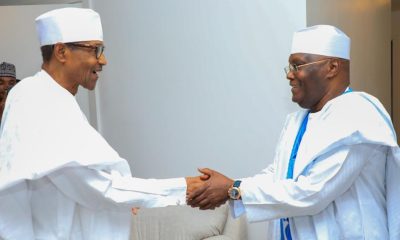
 Politics3 days ago
Politics3 days agoAtiku leads Tambuwal, El-Rufai, others to Buhari as 2027 election draws near
-

 metro3 days ago
metro3 days agoIbadan Pastor ends 30-year-marriage over sex dispute with wife
-

 metro3 days ago
metro3 days agoKemi Olunloyo angry, disowns family after father’s death
-
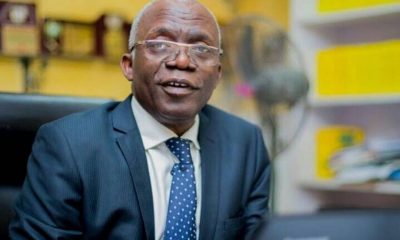
 metro3 days ago
metro3 days agoDefamation: Falana urges Akpabio to sue without involving police

